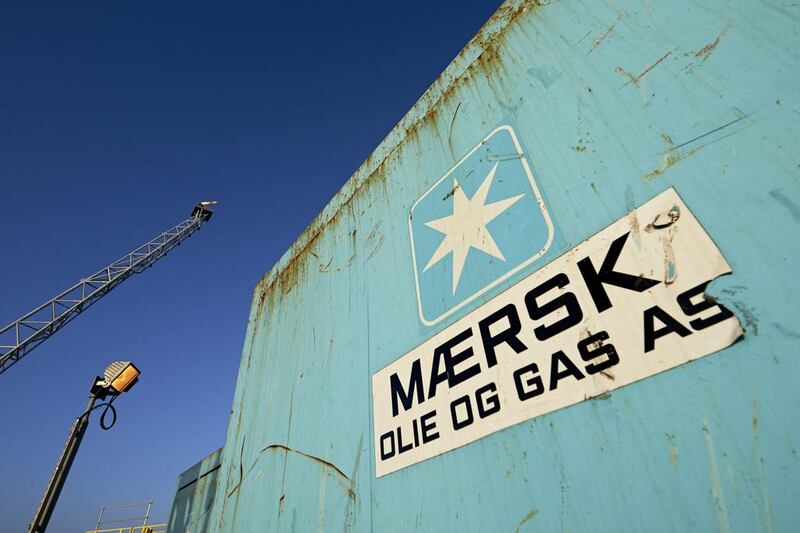Total is on the acquisition trail again. Its US$7.5 billion purchase of the oil assets of shipping group A.P. Møller-Maersk, announced on August 21st, is a change both from its recent strategy and those of its supermajor peers. And it demonstrates once again that the industry's merger and acquisition pipeline is getting unblocked.
Maersk Oil was in a vulnerable position. Its business, an outgrowth of the shipping giant founded by A. P. Møller ("Old Mr Møller"), was built on its shareholding in the Danish Underground Consortium, awarded in 1962, covering most of Denmark's offshore oil and gas production. Under Arnold Mærsk Mc-Kinney Møller ("Young Mr Møller") this was renewed in 2003, but on tougher terms than Maersk expected. utput went into steady decline shortly thereafter.
The company subsequently parlayed its experience at drilling long horizontal wells in Denmark's tricky chalk reservoirs to Qatar's Al Shaheen field. Initially thought to be non-commercial, then capable of producing some 20,000 barrels per day, Maersk started work at Al Shaheen in 1994, and was so successful that the field's capacity now stands at 300,000 barrels per day, making it Qatar's biggest oil-producing field. Eventually, Maersk was drilling wells extending 10,000 metres, amongst the world's longest.
________________
Read more:
[ Further OPEC cuts likely to receive Russian backing ]
[ Total's $7.5b deal for Maersk Oil brings tech to Mideast ]
________________
But relations with the Qataris eventually soured. In June last year, Maersk failed to renew the Al Shaheen contract on expiry. It was replaced, of all companies, by Total.
Searching for new core areas, Maersk bought Kerr McGee's North Sea assets in 2005, but was then hit by an unexpected UK tax rise. The company entered Brazil in 2011, but soon had to write off US$1.7bn of the value of its investment, after its fields proved to be less productive than expected.
This series of disappointments seems to have convinced the shipping group that it would be better off without its oil arm – and its drilling rigs, oil tankers and supply services businesses, collectively worth another $7.5bn or so, which are also on the block for sale.
Total seems to have paid quite a full price for Maersk Oil, some way above analysts’ estimates of around $5.6bn. But the acquisition could see Total move ahead of Chevron to become the world's third-largest non-state oil company by the end of the decade.
The deal rebalances Total's portfolio back towards OECD countries, after it concluded a number of recent Middle Eastern deals. Unlike BP and Shell, the French company has been maintaining its North Sea presence despite the area's maturity, bringing a $5bn gas project onstream only last year.
Maersk's share in Norway's Johan Sverdrup field, discovered only in 2010 but one of the North Sea's largest ever, is particularly interesting. Following the Maersk deal, Total's North Sea headquarters will now move from a post-Brexit London to Copenhagen, as it retains the Danish firm's technical skills.
As well as picking up stakes in Abu Dhabi's main onshore oil operator, Adco, and the Al Shaheen contract, Total in July became the first company, in partnership with China National Petroleum Corporation, to sign Iran's new petroleum contract, for Phase 11 of the South Pars gas field. Total is already involved on the Qatari side in the North Field, in Qatargas 1 and 2 and Dolphin Energy.
Before it was acquired, Maersk had been negotiating for Iran's South Pars Oil field, a continuation of Al Shaheen, hoping to repeat its success. Total could now try to operate on both sides of the Arabian Gulf.
The French firm exited Kurdistan earlier this year. The Maersk deal brings it back in, but it looks likely to offload its small stake in the Sarsang block, which is next to Taqa's Atrush field. Total may also dispose of the Dunga field in Kazakhstan where Maersk partners with Oman Oil. But Maersk's stake in newly-found fields in Kenya may be a useful combination with Total's assets in Uganda, where the company is building an export pipeline through Tanzania.
The Maersk deal is part of a general pick-up in petroleum M&A activity this year. Companies have digested the reality of the slump in oil prices, gone through cost-cutting and restructuring, and gained confidence in planning for an oil price at around $50 per barrel.
In contrast to Shell's mega acquisition of BG for $54bn, the other supermajors have chosen to do a series of smaller though still sizeable deals. As with BP's acquisition of a stake in Adco in Abu Dhabi, and ExxonMobil's buy of the Bass family's assets in Texas, Total chose to pay for Maersk via its shares and assumption of $2.5 billion of debt, rather than cash. This safeguards the entities' financial firepower, and by sharing a possible upside, makes it easier to agree on a price.
With the Total acquisition of Maersk, one of the more interesting, well-financed and technically-capable independent oil companies has been absorbed. As the mid-size American companies retreat home, the supermajors are increasingly sharing the world outside North America with private equity-backed upstarts, Asian and Middle Eastern national oil corporations, and a handful of surviving European mid-caps. All need creative strategies to survive the tough new oil world.
Robin M. Mills is CEO of Qamar Energy, and author of The Myth of the Oil Crisis






